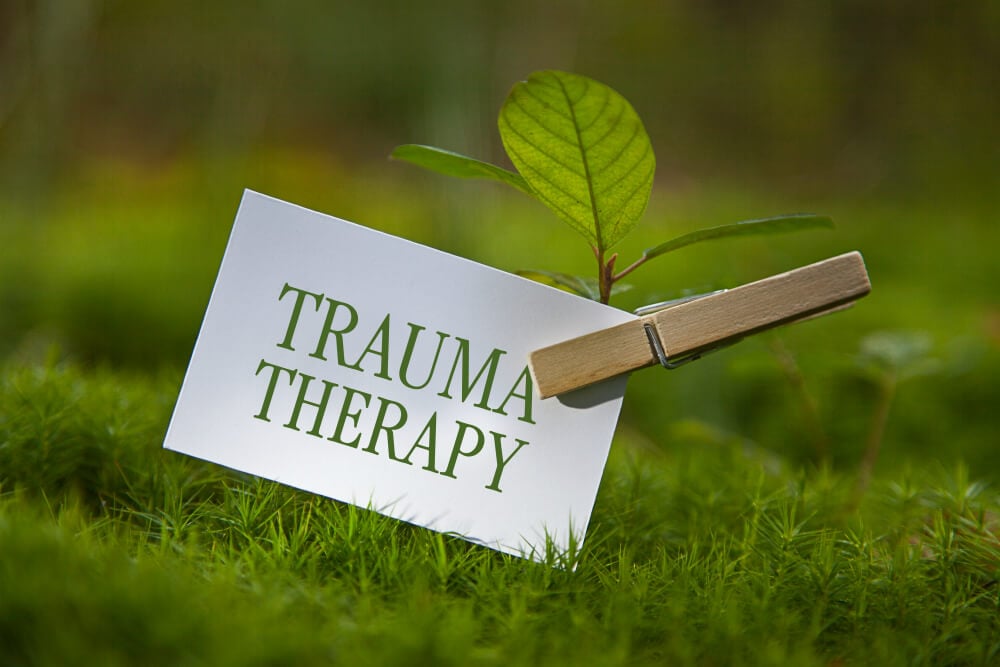
PTSD is an acronym which stands for Post Traumatic Stress Disorder. C-PTSD stands for Complex-Post Traumatic Stress Disorder.
What is PTSD?
PTSD describes a stress related disorder following exposure to a traumatic event or events. When we experience a trauma, we try to adapt and integrate our experience of the trauma. We might experience trauma symptoms for a few weeks however we are then able to integrate the experiences and symptoms dissipate. In some cases we are unable to integrate our traumatic experience which can result in experiencing PTSD symptoms. Trauma symptoms are classed as PTSD symptoms when they are still experienced after four weeks.
Most people have heard of PTSD in relation to the military or service personal involved in combat. You might have heard of 'shell shock' or 'combat fatigue' in a military context. PTSD symptoms also occur in civilian life. PTSD is the acronym used today for mid-term or longer lasting trauma symptoms usually caused by one or two unrelated big T traumas.

Circumstances which could cause PTSD Symptoms
- Car accident
- Physical attack
- Sexual abuse
- Traumatic operation or physical procedure
- Witnessing a violent assault
- Being involved in a natural disaster
- First hand experience of a Terrorist incident
- Sudden loss of a close loved one
PTSD Symptoms
PTSD symptoms might include: Intrusive symptoms including recurrent memories and dreams related to the event, flashbacks and physiological distress as well as feeling as if the event is occurring in the present. Persistent avoidance of thoughts, feelings, people or places related to the traumatic event. Negative alteration in thoughts and moods in relation to self and the world. Hyperarousal - Feeling easily startled, feeling as if you are on guard, getting irritable or angry quickly and difficulties concentrating or sleeping.

What is Complex PTSD
Complex-PTSD is PTSD which is more complex. This means that trauma was experienced over a significant period of time without a chance of escape and usually as part of an interpersonal relationship whilst developing in childhood.
Someone suffering from Complex-PTSD might have the same symptoms as someone suffering from PTSD but with additional symptoms. These symptoms might include experience of: Feeling permanently damaged, feeling shame, feeling ineffective, feeling under constant threat, withdrawing socially, despair, hostility and feeling different in terms of the person that they were before experiencing the trauma. Someone might also experience serious disturbance in self-organisation. Examples might include affect regulation, perception of self, a negative self-concept and dysfunction in managing interpersonal relationships.
There is much debate over whether Complex PTSD should have its own distinct diagnosis because its symptomology overlaps with other mental disorders. These include PTSD and Borderline Personality Disorder (BPD). People suffering from BPD often have similar core symptoms to Complex-PTSD. These might include dissociation, reckless or impulsive behaviour, self-destructive behaviours, irritability and impaired relationships with others. The ICD-11 (International Classification of Diseases 11th Revision) now has a separate classification for PTSD and Complex-PTSD.
| PTSD | Complex-PTSD |
|---|---|
| Sense of threat | Interpersonal disturbance |
| Persistent avoidance of thoughts, feelings, people & places | Negative self-concept |
| Re-experiencing | Affect dysregulation |
| Hyper-arousal | Sense of threat |
| Avoidance | |
| Re-experiencing |
One of the main differences between PTSD and Complex-PTSD is the cause. PTSD might be caused by a one off big-T trauma which highlights an underlying psychological difficulty. Examples of big-T trauma might include a physical assault or car accident. Experiencing PTSD is usually caused by an underlying difficulty which is already there or a complication in someone’s beliefs in relation to the accident. Examples of such a complication might include feeling guilty for surviving a trauma when others did not or assuming responsibility for what occurred.
Complex-PTSD is often caused by trauma which was repeated over a significant period of time where escape was impeded or not possible. It is also often experienced as part of a close interpersonal relationship which influenced a person’s development. Experiencing trauma in childhood has more of a negative impact because we are still developing and growing psychologically as well as physically. This might mean that we experience trauma as part of daily life. This makes recovery more complex because it has become the norm for a person rather than the exception. Therefore, finding homeostasis means developing a new sense of self. In PTSD we know what feeling in homeostasis or normal is like. With complex-PTSD we might not.
Experiencing repeated trauma in adulthood can result in significant personality changes in an attempt to help with coping or highlighting an inability to integrate what happened. This might be expressed as difficulties with regulation or processing emotions and dysfunction in interpersonal relationships.
Complex-PTSD Causes
- Neglect, emotional abuse, sexual abuse or physical abuse in childhood
- Traumatic events experienced in early life
- If the trauma was caused by a parent or caregiver
- If the person experienced the trauma on their own
- If the person who experienced the trauma is still in contact with the person who caused the trauma.

Treatment for PTSD and Complex-PTSD
The leading evidence-based treatment for PTSD is Eye Movement Desensitisation & Reprocessing Therapy. (EMDR).
Other approaches which can help include:
Trauma focused Cognitive Behavioural Therapy – (TF-CBT)
